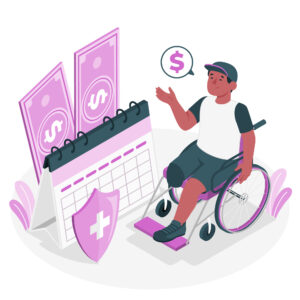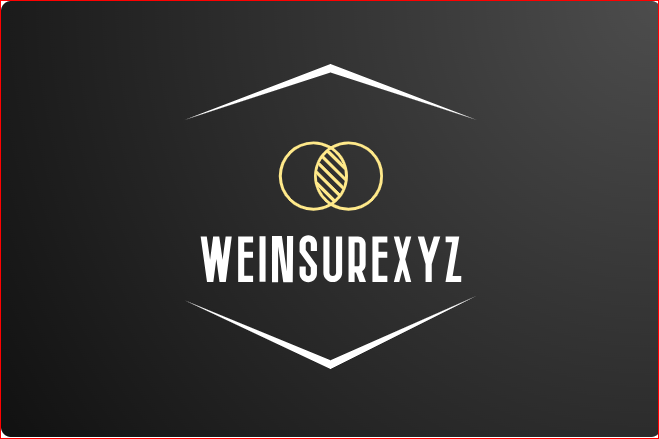What is NYS Disability Insurance Qualification Process?
When you apply for NYS disability insurance, the underwriting process begins. During this process, the insurance company collects information about you and uses it to decide whether to issue you a disability insurance policy. Because a disability claim can cost an insurer a lot of money, the  underwriting process is thorough. Any information you give, whether formally or informally, may be used to classify you as an acceptable or unacceptable risk. Working with Weinsurexyz can be helpful, because they can answer any questions you might have and guide you through the underwriting process.
underwriting process is thorough. Any information you give, whether formally or informally, may be used to classify you as an acceptable or unacceptable risk. Working with Weinsurexyz can be helpful, because they can answer any questions you might have and guide you through the underwriting process.
Applying for disability insurance
When you apply for disability insurance, you’ll be asked to fill out a lengthy application that includes specific medical, personal, and financial questions designed to give the company as much information as possible about your risk for disability. Your answers will be used to decide whether you will be issued disability insurance, in what amounts, with what coverage, and at what cost. You will be asked to provide confidential information about your sex, age, occupation, income, medical history, personal habits, finances, and so on, as well as information on other disability insurance coverage you may have. Answer the questions completely and truthfully. The insurance company has the right to cancel your coverage or deny a claim within a certain period of time (usually two years) due to errors or misrepresentations on your application.
Age and gender
You will be asked to fill in your name, address, date of birth, gender, and Social Security number, among other things. Your disability premium, in part, will be based on your age and gender. The younger you are, the less your premium tends to be. If you are female, you will sometimes pay a higher premium than if you are male (unless the insurance company offers unisex pricing). Females file more disability insurance claims than males, so insurance companies usually consider them to be a greater risk.
Occupation
Your occupation plays an important role in determining what kind of disability coverage you can buy and how much your premium will be. The underwriter will consider your job duties as well as your title. Statistically, certain occupations pose less risk to the insurance company. For instance, if you are an architect, an engineer, or a CPA, you are less likely to file a disability claim than if you are a maintenance worker, hotel manager, or mechanic. Insurance companies group occupations together and assign them a rating class based on how hazardous the occupation is, the income level of individuals working in the occupation, and claims experience. These ratings vary from company to company but use a number and/or letter system to classify risks (such as class 1, 2, 3, and 4, or A, B, C, and D).
Income
The amount of money you earn affects the type of coverage you can buy, what your monthly disability benefit will be, and how high your premium will be. High-income professionals generally fall into higher ratings classes. If you have relatively high earnings, you may be able to buy a policy that has a more liberal definition of disability and more comprehensive coverage. In addition, the benefit amount you may purchase is based on your gross earned income before taxes. You will usually be asked to present proof of income, most likely an income tax form or wage and earnings statement.
Each insurance company has a table that is used to determine how much monthly benefit you can receive based on your earnings. In general, the insurance company will try to replace 50 to 70 percent of your pretax earnings. This percentage may be higher if your income is low or less if your income is high.
Medical history
How healthy you are now and how healthy you’ve been in the past is the single most important factor used to determine your eligibility for disability insurance coverage. The application will list a series of questions designed to expose current and past health conditions. If you’ve had health problems, you’ll need to supply details such as the name and address of your physician, duration of treatment, and dates of illness or injury. You’ll probably be asked to take a paramedical examination, including a blood test and a urinalysis. Some people must undergo a full physical examination. You may also be asked questions about your family’s medical history to determine whether you are at high risk for developing certain medical conditions, such as diabetes, heart disease, cancer, or Parkinson’s disease (among others).
Personal habits and lifestyle
You’ll also be asked a series of questions designed to determine whether your lifestyle increases your chances of suffering a disability. For instance, you may be asked if you’ve ever been declined for other disability insurance, if you’re a pilot, if you travel out of the country, or if you’ve ever been arrested. Be truthful. The insurance company has access to a lot more information than you may suspect. It can get information from databases and, with your permission, from credit bureaus and other organizations. It can even conduct interviews with your friends and family.
If your lifestyle seems risky, you may be asked to fill out one or more supplemental questionnaires designed to shed more light on the actual risk you pose. Again, even less-than-perfect answers to these questions may not affect your ability to buy disability insurance. It’s just one point that the insurance company considers.
Other disability coverage
Insurance companies want you to get better and return to work rather than live off your disability income forever. To give you incentive, they limit the amount of coverage you can buy, based on the amount of coverage you already have. They take into consideration what other private disability policies you own, what group insurance disability benefits you will be entitled to, and whether you’re eligible for Social Security or other governmental disability coverage. Your new policy will be designed to supplement, not add to, the benefits of any other coverage you have.
The underwriter’s job is to evaluate and classify risk
Although underwriting practices vary, here’s how the underwriting process usually works: After your application is submitted (through Weinsurexyz), the carrier underwriter reviews it. You may be issued coverage right away, or you may have to submit additional information or reports to help the underwriter determine whether you are an acceptable risk. You will be assigned one of three risk categories: the preferred risk, the standard risk, or the special risk (also known as substandard risk). The category to which you are assigned determines what kind of coverage you can buy and how much the coverage will cost.
You may be classified as a preferred risk if you are (in the eyes of the underwriter) less likely than most people to file a claim for disability insurance. To be considered a preferred risk, you have to meet the guidelines established by the insurance company. For instance, you may have to be a nonsmoker, work in a low-risk occupation, and be very healthy. As a preferred risk, you may pay less for disability insurance coverage than others pay.
Most disability insurance applicants are classified as standard risks. They are no more or no less likely to become disabled than anyone else.
If the underwriter feels that you are more likely to file a future disability insurance claim than a standard risk, he or she may classify you as a special or substandard risk, or you may be denied coverage; however, more likely you will be issued coverage but with special terms and conditions. An amendment may be attached to your policy that fully excludes certain medical conditions or excludes them for a period of time. In addition, you may have to pay a higher premium or settle for a longer elimination period, a shorter benefit period, or both.
What to do if you’re denied coverage
Weinsurexyz can be your advocate if you are turned down for coverage. We are familiar with the underwriting process and supplied information to the home office underwriter, so Weinsurexyz is in a good position to plead your case. However, there may be nothing he or she can do if you simply don’t meet the risk factors established by the insurance company.
Weinsurexyz may be able to place your case with a company that specializes in substandard insurance. However, you can expect the premiums to be very high and benefits to be limited with these policies.
The application form usually outlines the procedure to follow in the event your application is denied, and you want to appeal. Or, you can ask us to explain what you can do to appeal. If you believe the company denied your application due to erroneous information that it received, you can write a statement explaining why you disagree with its decision and provide correct information, if possible.
Let us help you bind Disability Benefits Insurance and any of the following coverages:
- Business Liability Insurance Package Policy. Often referred to as a Business Owner Policy or “BOP,” this General Liability package policy protects your company in the event a client is injured on your premises, or if you or one of your employees causes an injury or property damage at a client’s location. Learn more…
- Professional Liability Insurance . Professional Liability or “Errors & Omissions” Insurance provides coverage in the event you are legally obligated to pay for economic damages to your client or a third party allegedly caused by your negligence, error or omission in the performance of your professional services. Learn more…
- Workers’ Compensation Insurance. Required in many states, Workers’ Compensation Insurance provides medical and disability coverage for company employees in the event of a work-related illness or injury. Learn more…
- Employment Practices Liability Insurance . EPLI insurance provides the protection you need should one of your employees allege any number of employment practice violations. These violations include age, race or gender discrimination, wrongful termination and sexual harassment. EPLI is essential coverage for today’s small service business. Learn more…
- Umbrella Liability Insurance . Umbrella or “Excess Liability” Insurance provides you with an extra layer of protection in the event you have large or multiple claims that exceed your General Liability, Commercial Auto or Employment Practices Liability policies. Learn more…
Our WeInsureXYZ Website is designed to provide you with accurate insurance information and access to quality insurance products, quickly and securely. Let us help you create a comprehensive insurance solution that fits your needs and your budget.
Don’t wait! Get the protection you need for your small business today.

